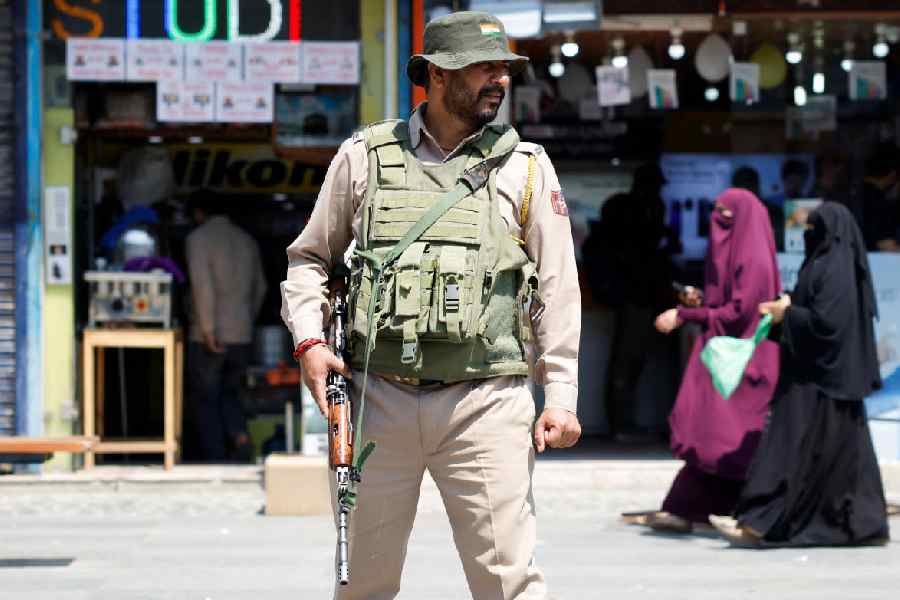Defence minister Rajnath Singh on Monday met Prime Minister Narendra Modi and briefed him on India’s “operational readiness” along the frontier with Pakistan and the security preparedness across Jammu and Kashmir, the first such briefing since the Pahalgam attack.
The development comes at a time when India has alleged “cross-border linkages” to the Pahalgam terror attack and promised the harshest punishment for those responsible, raising fears of another military escalation with Pakistan. Islamabad has denied any role in the massacre.
During the 40-minute closed-door meeting at the Prime Minister’s residence, the country’s top leadership discussed the possible strategies of adversaries and India’s military preparedness to respond to emerging threats and challenges, sources in the security establishment said.
The meeting comes a day after the Chief of Defence Staff, Anil Chauhan, briefed Rajnath on the key decisions taken to counter Pakistan following the Pahalgam massacre, a security official attached to the Union home
ministry said.
Government sources said India was considering a range of retaliatory military options against Pakistan.
They said that before meeting Modi, Rajnath had visited South Block where he received a detailed briefing from the army chief, General Upendra Dwivedi, on the situation in Kashmir.
“Rajnath Singh also briefed the Prime Minister on the ongoing intensified operations and security arrangements across Jammu and Kashmir following the terror attack,” a security official said.
The security forces have intensified their efforts on the ground, launching targeted raids against suspected terrorists and their networks of supporters across Jammuand Kashmir.
The army said that Pakistani troops had carried out “unprovoked” firing across the Line of Control in Jammu and Kashmir for four nights in a row following the Pahalgam attack.
It added that the Indian side had retaliated effectively to the ceasefire violations. No casualties have been reported.
Probe crawls
The probe into the April 22 attack that killed 25 tourists and a local ponywallah has made little headway, sources in the security establishment said.
“The attackers are still free. The security forces have been combing the dense jungles and mountains but have so far been unable to trace them,” a security official said.
The National Investigation Agency, which took over the probe from Jammu and Kashmir police on Sunday, has intensified its search for evidence and is questioning eyewitnesses.
“Our team is conducting a thorough assessment of the attack site and collecting forensic evidence that might help identify the terrorists,” an NIA official said.
YouTube curbs
The Centre has banned 16 Pakistani YouTube channels, including Dawn News, Samaa TV, Ary News and Geo News, accusing them of spreading provocative and communally sensitive content as well as misinformation about India, its army and its security agencies.
The YouTube channels of former Pakistan cricketers Shoaib Akhtar and Basit Ali, too, have been blocked.
The Union home ministry recommended the bans.
The Centre has conveyed to Jackie Martin, India head of the BBC, its strong reservations about the broadcaster’s reporting on the Pahalgam attack, a government official said.
He said the government had also objected to the BBC describing “terrorists”as “militants”.










